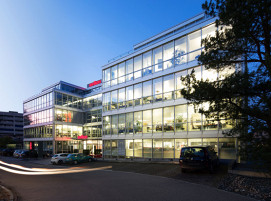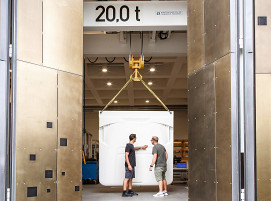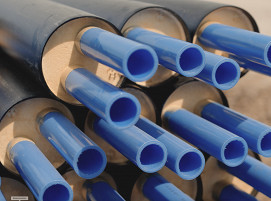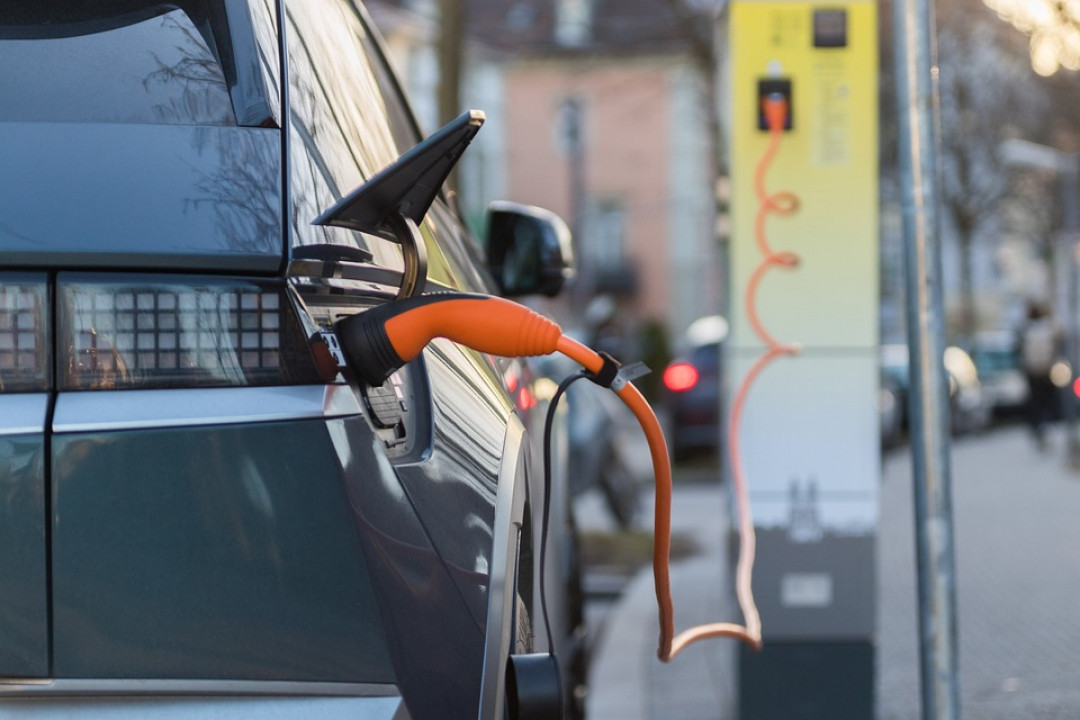
Electric mobility is making great strides in Germany and across Europe. Building further momentum will require an extensive build-out of production capacity for battery cells in this country. Production methods will also have to use little energy and be much less expensive. A team of researchers from the Fraunhofer Institute for Material and Beam Technology IWS in Dresden has developed DRYtraec, a revolutionary method that permits cost-effective, eco-friendly manufacturing of battery electrodes. For this pioneering technology, the research scientists were presented with the Joseph von Fraunhofer Prize for 2025 at the Fraunhofer annual assembly.
At a time when electrified vehicles and stationary energy storage play key roles in the climate-neutral future of the energy sector, sustainable production of lithium-ion batteries is essential. A team of researchers headed by Benjamin Schumm, Holger Althues and Stefan Kaskel has developed DRYtraec (dry transfer electrode coating), a novel method of battery cell production that uses none of the toxic solvents that are otherwise typical and eliminates the energy-intensive and costly drying of the electrode layers.
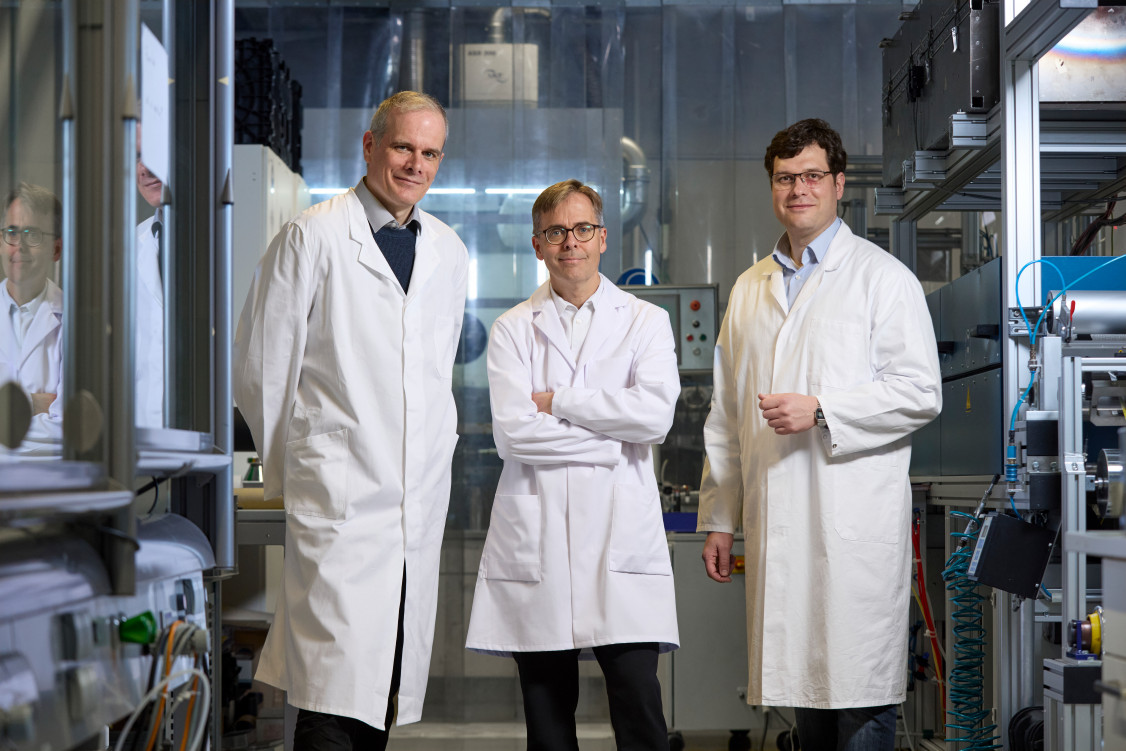
The Challenge of battery production and the innovative DRYtraec solution
A key component of any battery, electrodes normally consist of a metal foil with a thin coating. This coating contains the active components that are responsible for storing energy. “The conventional coating process uses a wet chemical method that applies what is known as slurry,” explains Schumm, the head of the Particle Technology department at Fraunhofer IWS. “DRYtraec technology makes it possible to produce an electrode layer directly from a dry mixture consisting of active material, conductive carbon black and binders.” Unlike in the conventional slurry method, no solvents are used for this. A special calender unit generates shear forces in a roller gap called a nip, thereby mechanically anchoring particles of the active material and conductive carbon black by causing the binder to form fibrils, a process known as fibrillation. Supported by the calender rollers, the result is a completely dry electrode layer, eliminating the energy-intensive drying stage, which also takes up a lot of space. Double-sided coating is also possible in a single step through direct transfer of both sides to the current collector foil. The DRYtraec electrodes produced with no solvents display outstanding performance and stability without any drawbacks compared to slurry-based electrodes.
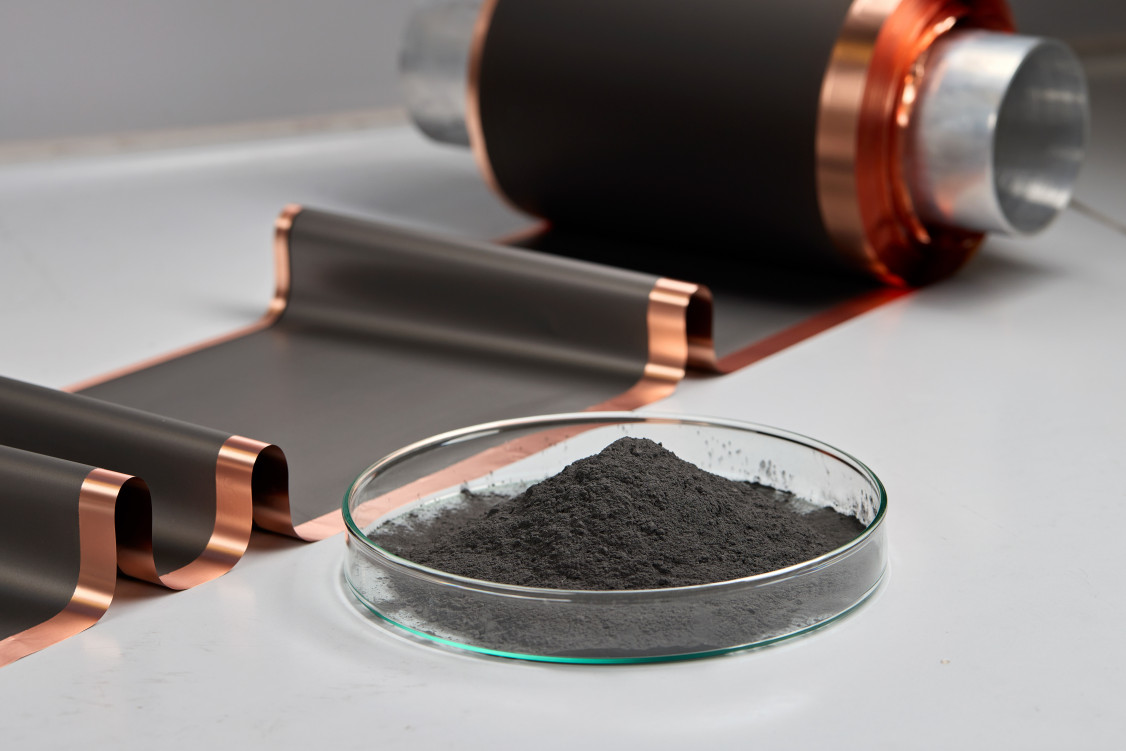
DRYtraec – patented technology
The unique scientific method and approach represented by the roller-based dry film transfer process minimizes production risks while making it easier to scale up to larger coating widths and higher process speeds. The world’s first prototype system was designed and constructed back in 2013 and the technology has been steadily evolving ever since. The system enables continuous process control and production of high-quality electrodes in a roll-to-roll process. “For DRYtraec, we realized an R&D platform that offers industry customers a broad range of options, from testing to transfer to commercial use, all along the value chain. Now that we have licensed the technology to a leading company in the European automotive industry, this is paving the way for further scaling all the way up to mass production,” explains Althues, head of the Battery Materials department at Fraunhofer IWS.
The DRYtraec method is also suitable for the important battery technologies of the future, such as sodium-ion and solid-state batteries. “Drop-in” capability for electrode production has been demonstrated for these cell systems. Kaskel, Technology Field Manager Battery Technology at Fraunhofer IWS, explains: “We first realized this process for electrodes in lithium-ion batteries and have now adjusted it for lithium-sulfur and solid-state batteries as well. These will be increasingly important in the future, but the materials’ performance suffers with wet chemical processing. With DRYtraec, we offer a promising approach with twice the advantages.”
(Source: Fraunhofer IWS)
Schlagworte
Corporate Social Responsibility DirectiveE-MobilityEnergyScopeSustainabilityTransformation


